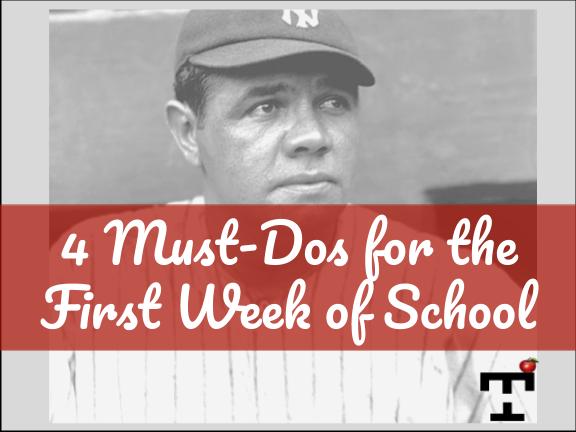
Are you one of those teachers who never throws things out? Is your closet stuffed to the gills with clogged glue bottles, science kits for topics no longer in your curriculum, and student projects from 1998? Do you have multiple filing cabinets filled with worksheets that haven’t seen daylight since the second Bush administration, totes containing manipulatives you’d be surprised to learn you own, and a box of confiscated toys that lost their popularity five years ago? If so, you may be making your job and the job of your students harder.
We hold onto things for lots of reasons, and the more committed emotionally or financially we are to an item, the more we want to keep it. We might hold onto a box of old road maps because we have fond memories of using them to teach scale. We refuse to get rid of The Mailbox magazines because there are good ideas in them (never mind we haven’t opened one in a decade and all those ideas are on the Internet, taking up no physical space at all). We wrote and won a grant that we used to purchase keyboards for iPads, and even though the iPads have been replaced with Chromebooks we can’t bring ourselves to get rid of the keyboards.
One reason we don’t like to purge is that we may have made a mistake when we purchased or accepted the items in the first place. It’s painful to admit we’re wrong. Science has found that our brains react to the loss of a valued possession the same way they respond to physical pain. But although it might hurt, clearing out some of your crap will help you and your students.
Neuroscientists at Princeton University found that subjects in a disorganized environment had a harder time maintaining attention than those working in an organized environment. The study showed that physical clutter competes for our attention, resulting in poorer performance and increased stress. You and your students will be less irritable, more productive, distracted less often, and able to process information better in an uncluttered classroom.
The cleanliness of your room can also impact students’ behavior. A study conducted in 2006 by the University of Sussex took an in-depth look at over 100 English families with small children. Researchers found a clear link between cleanliness and order, and well-behaved children.
Like other teacher characteristics that harm student learning, we shouldn’t excuse a teacher’s messy classroom as a personality quirk. We don’t look the other way when teachers are unable to give clear directions because they’re scatter-brained. If we agree that students learn more from people they like than those they don’t, we shouldn’t permit teachers to be jerks. A teacher who’s a bully doesn’t get a free pass just because he experienced rejection as a child and has low self-esteem. Messy classrooms are a hindrance to student learning, and teachers should be encouraged to clean them up.
If you’ve got too much stuff, take these four steps to conquer your clutter:
Yearly Cleaning
Near the end of each year clean out your closets, filing cabinets, and desk. Do it while school is still in session. Many students like to help. Plus, it’s free labor. Your district isn’t going to pay you to de-clutter over the summer, and you shouldn’t work for free, especially when the work you’re doing will benefit your students. Get rid of anything you haven’t used in two years. Toss it, sell it, or give it away. I’ve never once gone looking for something after this length of time.
Set Limits
Set limits. Don’t exceed them. Allow yourself three totes for science materials. Don’t buy any more bookcases. Get rid of a filing cabinet. When the totes, bookcases, and filing cabinets are full, you’ll be forced to get rid of something to make room for something new. Setting limits is like establishing a spending budget; when you hit the magic number, you’re done.
Cut Space
Force yourself to live within new constraints. If you’ve got 12 boxes of stuff in your room, cut them down to six. You can do the same for digital clutter. Limit the number of emails in your inbox to 100. Limit the amount of Google Drive folders to 25. Limit the number of files in each folder to 50. Learn to live within new limits and you’ll be forced to carefully monitor your stuff.
Would You Buy It?
Finally, if you can’t decide whether to keep or trash an item, ask yourself this question: “If I didn’t already own this and I saw it in a store today, would I be willing to buy it?” If the answer is no — and it usually will be– then get rid of it.
What about you? Are there strategies you’ve used to stay on top of clutter and keep your classroom organized? Let us know in the comments.





